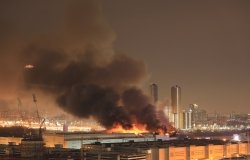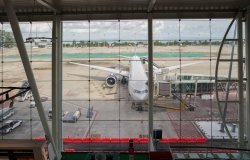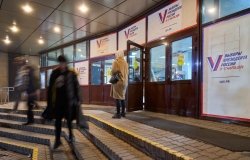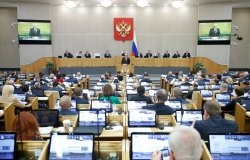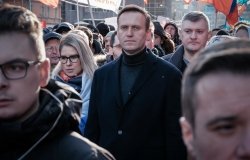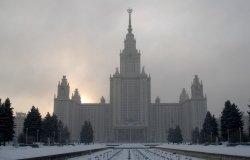
A blog of the Kennan Institute
The Russian Shadow behind the Comey Dismissal
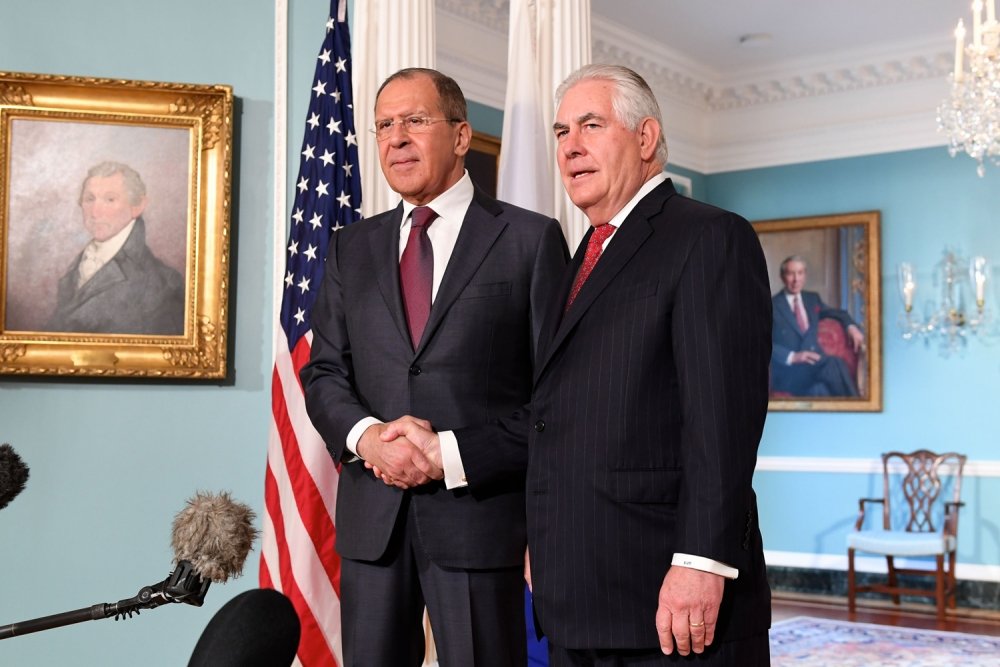
The Trump’s administration’s highest-level meeting with Russia is taking place on Wednesday morning. The Russian foreign minister Sergey Lavrov will call on President Trump in the White House, the first such visit since 2013.
“It’s unclear when the meeting with Trump was set,” Politico reports. “But it is customary for the president to receive a visiting Russian foreign minister. Tillerson met with Putin during his April 12 visit to the Kremlin.”
The meeting would be seen as an all-positive development were it not for President Donald Trump’s decision, on Tuesday, to dismiss FBI director James Comey. The abrupt firing is consequential in many respects, but one issue is bound to dominate the public discussion: the FBI’s unfinished investigation into the Trump 2016 presidential campaign’s possible ties with Russia.
Meanwhile, the Kremlin and the White House are busy preparing an upcoming summit between Russian and American presidents, Lavrov said recently in a televised interview. “You see, both us and the Americans need this meeting not to make an impression on somebody, but to deliver specific results,” Lavrov said. “And to deliver specific results it has to be prepared thoroughly. We are working on that right now.”
While in Washington Lavrov also met with Secretary of State Rex Tillerson to discuss Syria and Ukraine. On Thursday the two men head separately to Alaska for a meeting of the Arctic Council in Fairbanks, Alaska.
The firing of former director Comey and the high-profile talks with Russia are clearly a coincidence, but the two narratives will inevitably intertwine in media reports, despite the Kremlin’s and White House’s best efforts. "This has nothing to do with Russia," Kellyanne Conway, a senior White House adviser, told CNN late Tuesday evening. "Somebody must be getting $50 every time (Russia) is said on TV.... (This) has everything to do with whether the current FBI director has the President's confidence and can faithfully execute his duties."
Politicians of all colors will only increase their scrutiny of the Russia probe. Journalists will find it hard not to draw connections between the Russia probe and the Trump administration’s intensified contacts with Russia. The New YorkTimescalled the announcement late Tuesday night that Trump would meet Lavrov “an instance of bizarre timing and optics.”
Coincidentally, hours before the Comey news broke, CNN reported that federal prosecutors had issued grand jury subpoenas to associates of former national security advisor Michael Flynn, seeking business records as part of the Russia probe. Flynn is under investigation for his financial ties to Russia and Turkey.
The collision of facts and their interpretations will inevitably fuel the mistrust in the virtual triangle of the U.S. administration, the Kremlin, and international media. Meanwhile, the most likely reason for intensified contacts is a realization on both sides that they need each other to produce any lasting results in the Middle East and more generally in international security.
The opinions expressed here are solely those of the author.
About the Author

Maxim Trudolyubov
Editor-at-Large, Meduza
Maxim Trudolyubov is a Senior Fellow at the Kennan Institute and the Editor-at-Large of Meduza. Mr. Trudolyubov was the editorial page editor of Vedomosti between 2003 and 2015. He has been a contributing opinion writer for The International New York Times since the fall of 2013. Mr. Trudolyubov writes The Russia File blog for the Kennan Institute and oversees special publications.
Read More
Kennan Institute
The Kennan Institute is the premier US center for advanced research on Russia and Eurasia and the oldest and largest regional program at the Woodrow Wilson International Center for Scholars. The Kennan Institute is committed to improving American understanding of Russia, Ukraine, Central Asia, the Caucasus, and the surrounding region though research and exchange. Read more


